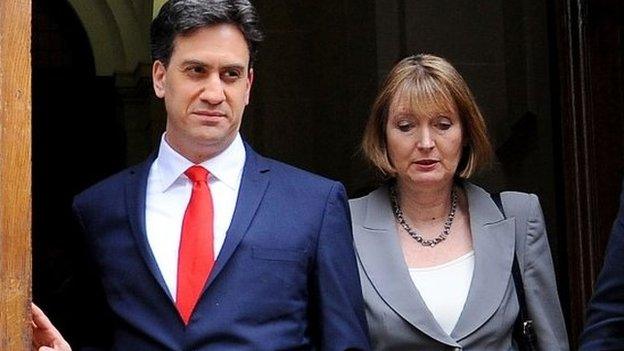Harriet Harman rules out Labour leader removal clause
- Published
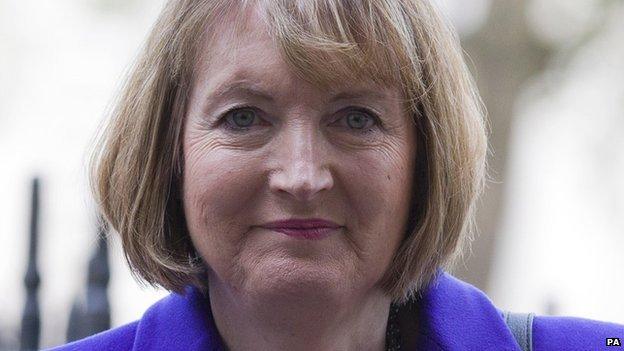
Harriet Harman has rejected calls for Labour to put a "break clause" in place to potentially remove its new party leader before the next election.
Some MPs, including shadow education secretary Tristram Hunt, have suggested the next leader must seek re-election or re-endorsement before 2020.
But interim Labour leader Ms Harman said whoever was elected should get on with the job for the next five years.
A "truth and reconciliation" probe will examine Labour's defeat, she added.
In an interview with the Observer, external, Ms Harman said that once a leader was elected it was "for them to be getting on and doing that job" until the next election, in 2020.
It comes as Mr Hunt - who has ruled out standing in the leadership context - said the party should hold another leadership campaign in three years to make sure it had made the right choice as leader.
'Forensic' commission
Ms Harman said she had also warned leadership contenders at a recent shadow cabinet meeting that they should demonstrate their effectiveness as opposition politicians.
She had told them "the eyes of the party" were on them, she said.
Yvette Cooper, Andy Burnham, Liz Kendall and Mary Creagh have announced they will stand for the Labour leadership.
Candidates must get the support of 35 of the party's MPs in order to stand in the contest, which will be decided in September.
Ms Harman said ex-deputy leader Margaret Beckett would also lead a commission to examine "in a forensic way" the reasons behind Labour's election defeat.
"We want at the end of this truth and reconciliation commission to have a better and honest understanding of why we ended up in this situation, but we need to be united and coherent in order to be attacking the government and also to make sure we are in a united position to go forward," she told the newspaper.
Ms Harman said she believed voters had only made their minds up late on in the campaign not to back the party.
There were "a large number" of undecided voters who had made up their minds at the last minute and "stuck with the devil they knew", she told the Observer.
"There is some anecdotal information about people hovering outside the polling stations thinking 'Should I do this or that?' It is down to us to find out why we couldn't convince people to trust us," she added.
- Published28 May 2015
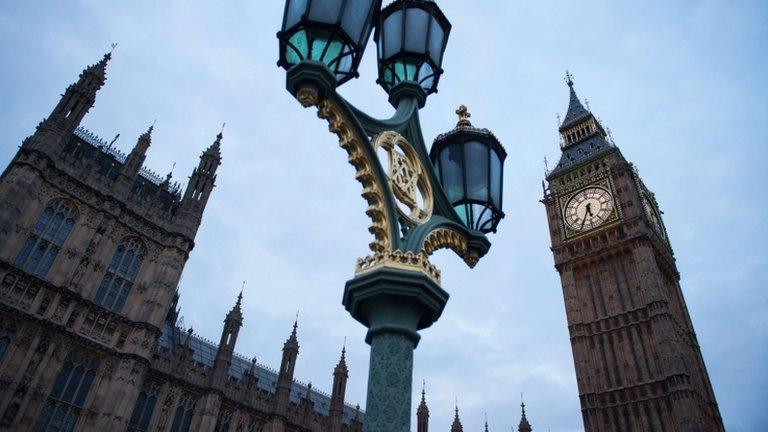
- Published29 May 2015
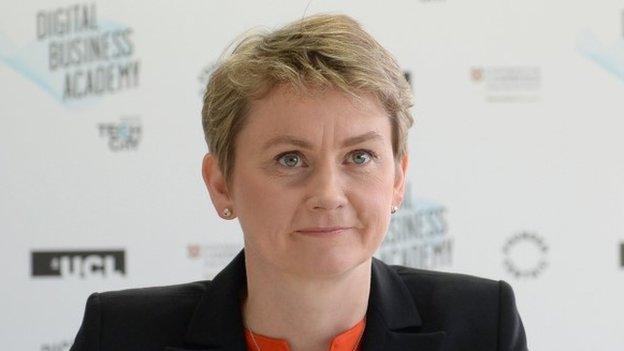
- Published29 May 2015
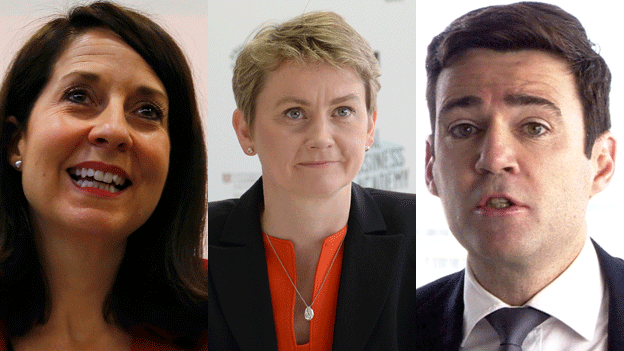
- Published11 May 2015
